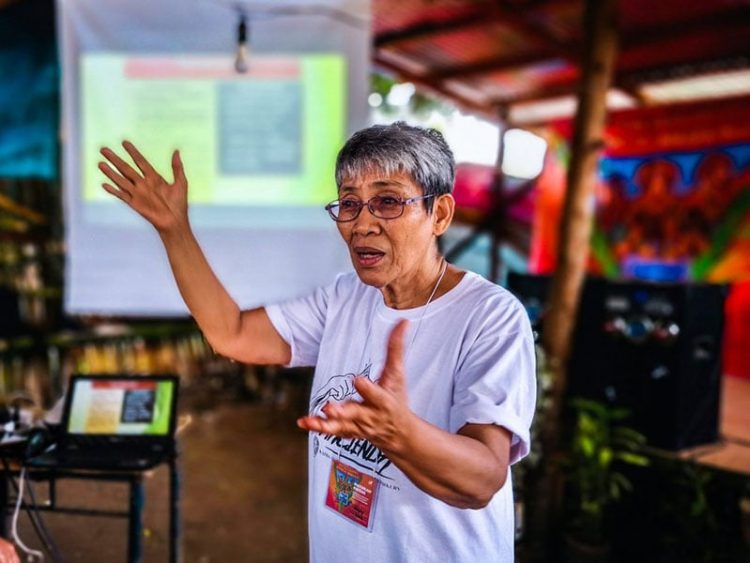The Coalition of Agricultural Workers International (CAWI) supports the call of our fellow land rights advocates in the Philippines for the immediate revocation of the warrant of arrest served to Angie Ipong, an esteemed peasant activist who have, for years, faced political persecution for her commitment to advancing genuine agrarian reform anchored on the return of lands to the tillers.
Together with several others, Ipong is charged with alleged murder for which the warrant was signed more than a year ago. A leading member of CAWI, the Unyon ng mga Manggagawa sa Agrikultura (Union of Agricultural Workers or UMA), whose women’s desk Ipong chairs, has denounced the case as unfounded and fabricated. It is also feared to serve as an overture to heightened attacks on other individuals, particularly peasant leaders, and progressive groups that have increasingly been subjected to systematic harassment and violence, under President Rodrigo Duterte, for their defense of people’s rights to land and resources.
Ipong is no stranger to such politically motivated maneuvers. She served six years behind bars for what would later be found baseless and trumped-up charges of arson, murder, and rebellion. Before her release from jail in 2011, however, she had organized fellow inmates and shared with them some of her knowhow about agro-ecological farming, which they practiced on a collectively cultivated organic garden.
All this she had learned from decades of working with farmers and agricultural workers in Mindanao and acquiring techniques of, for instance, making and using organic fertilizers and pesticides in growing food. She asserted that this sustainable alternative to the monopoly-dominated, chemically dependent regime of agriculture signals the communities’ resistance to agribusinesses that control plantations in the region. It demonstrates how the right to food and other resources cannot be extricated from the struggle against landlords and multinational corporations that have kept Filipino peasants in feudal bondage and poverty.
Ipong brought this conviction to Hacienda Luisita, a 6,453-hectare sugar plantation in central Philippines, where she pioneered the land occupation and cultivation activity that came to be known as “bungkalan.” Deriving inspiration from her passion, fellow peasant advocates believe her contributions to the campaign for land redistribution may have earned the ire of past administrations and the current one—all of which promote the local landed elite’s interests while subjugating the peasantry with ever repressive policies.
We note with alarm that the charge leveled against Ipong is illustrative of the human rights situation in the Philippines, which has for consecutive years ranked as the most dangerous country for people asserting their rights to land and resources. It is part of a worrisome pattern of crackdown. Besides blatant violence, legal harassment like this hinders the efforts of peasant activists at working with communities to seek redress for the injustices dealt them, in their livelihoods and ways of life.
We thus reiterate our call for the dismissal of the case against Ipong and join our members and partners in the Philippines in demanding an end to the attacks on peasant advocates and human rights defenders. Finally, we express our solidarity with all groups and communities resisting land and resource grabbing, and our support to their continuing fight for people-centered rural development and equitable land reform.








Discussion about this post